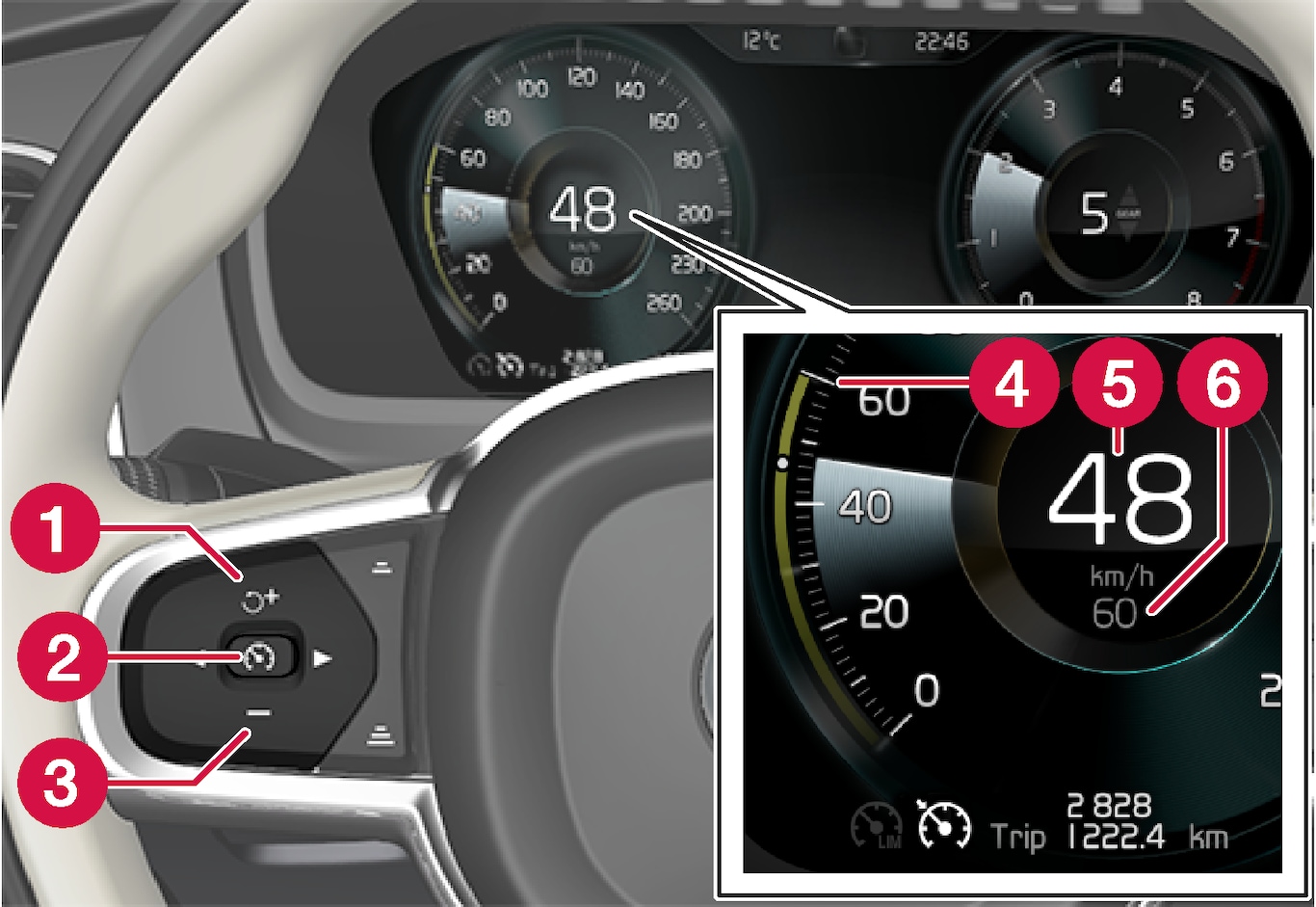Overview

 |  : Activates cruise control from standby mode and resumes stored speed : Activates cruise control from standby mode and resumes stored speed |
 |  : Increases the stored speed : Increases the stored speed |
 |  : From standby mode – activates cruise control and stores current speed : From standby mode – activates cruise control and stores current speed |
 |  : From active mode – deactivates/changes cruise control to standby mode : From active mode – deactivates/changes cruise control to standby mode |
 |  : Reduces stored speed : Reduces stored speed |
 | Marker for stored speed |
 | The car's current speed |
 | Stored speed |
Note
Warning
- The function is supplementary driver support intended to facilitate driving and make it safer – it cannot handle all situations in all traffic, weather and road conditions.
- The driver is advised to read all sections in the Owner's Manual that relate to this function to learn about factors such as its limitations and what the driver should be aware of before using the system.
- Driver support functions are not a substitute for the driver's attention and judgement. The driver is always responsible for ensuring the car is driven in a safe manner, at the appropriate speed, with an appropriate distance to other vehicles, and in accordance with current traffic rules and regulations.
Using engine braking instead of the foot brake
With Cruise Control, speed is regulated with less frequent application of the foot brake. On a downhill gradient it may sometimes be desirable to start moving a little faster and limit the acceleration by engine braking. In this case the driver can temporarily disable foot brake application by Cruise Control.
To do so, proceed as follows:
Depress the accelerator pedal about halfway down and release.
Cruise Control will disengage its automatic foot braking and then uses engine braking only.